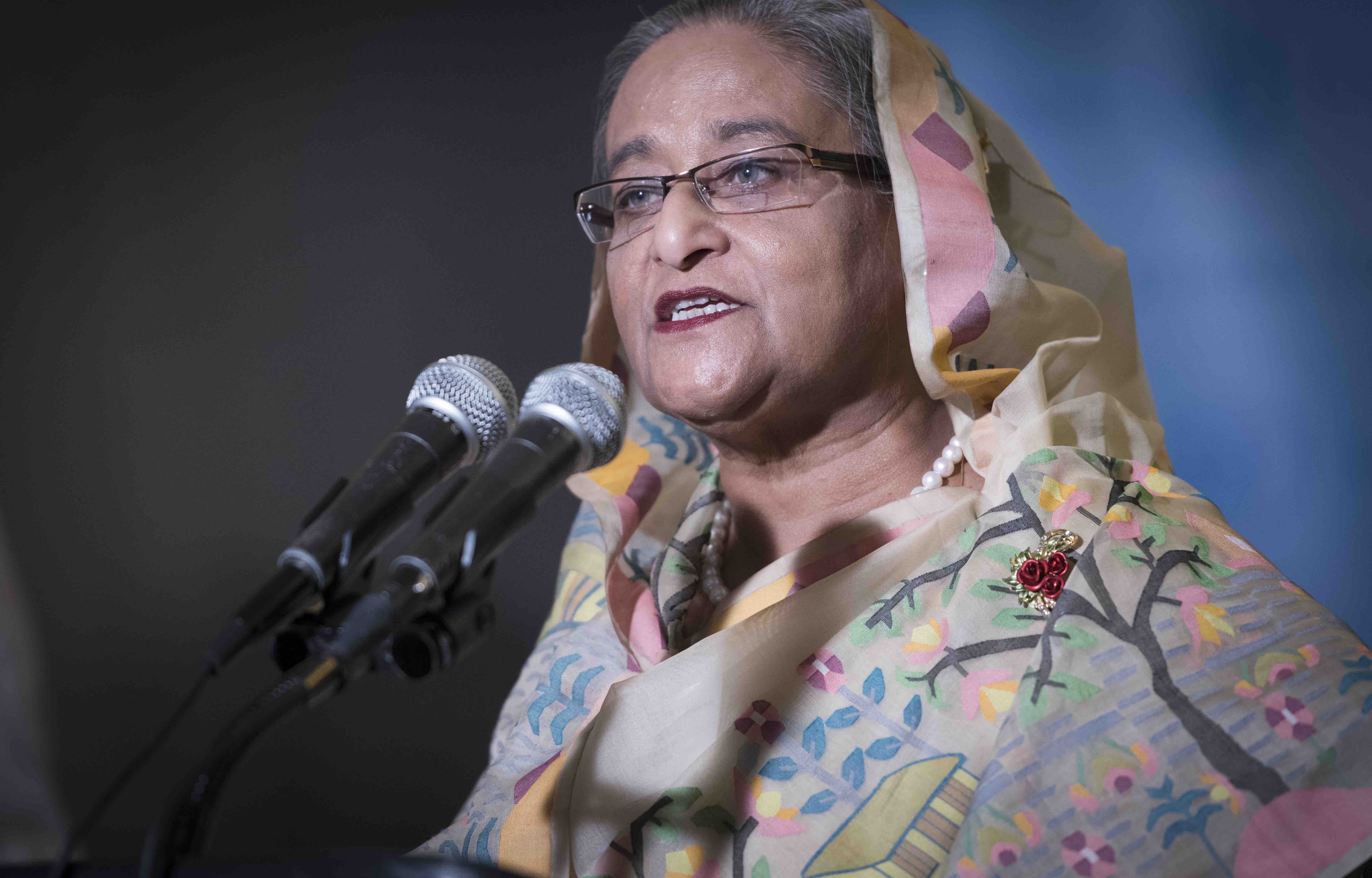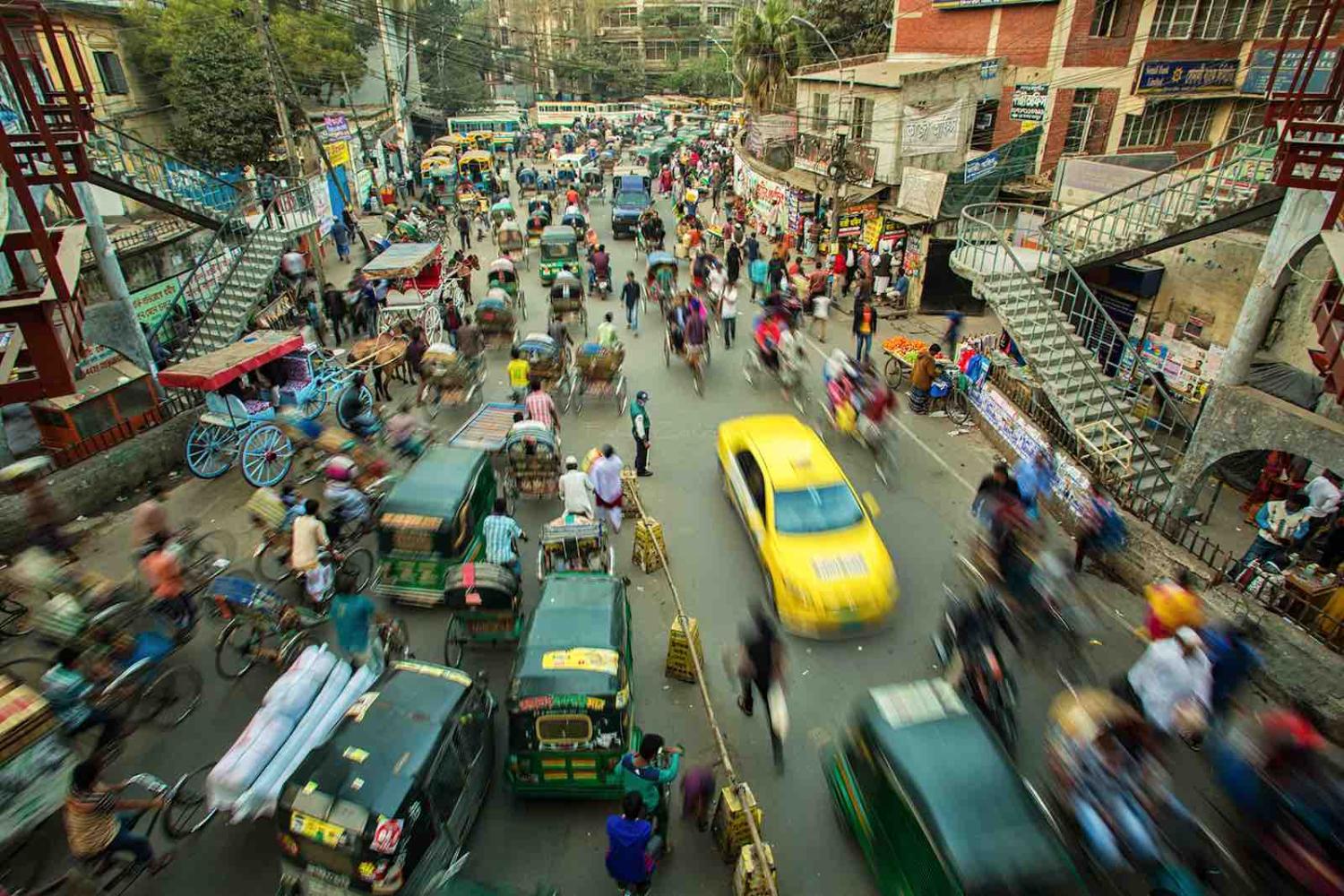Bangladesh is certainly not in a happy state these days.
With more than 21,000 people falling prey to dengue fever in Dhaka, and the epidemic rippling out to wider regions of the country, authorities are simply unable to contain the problem. The city corporations in the capital – there are two such administrative divisions – have come under intense criticism for their failure to tackle the menace in the last few years.
In the more than four decades since the assassination of Sheikh Mujibur Rahman, the country’s founding father, politics in Bangladesh has steadily veered towards right-wing populism.
The monsoon rains this time of year only compound the problem. Villages and towns are under assault by aedes mosquitoes, and authorities have little clue about what to do. Hospitals and other medical centres are full and have been turning away patients for lack of space.
The government plans to import mosquito repellent, but that will take time. Officials says it will be September before dengue can be rolled back. Meanwhile, the epidemic has claimed lives, including three doctors and two university students.
Dengue is not the only annoyance troubling Bangladeshis today. The recent remarks of Priya Saha on the dwindling number of religious minorities in the country have caused an uproar. Saha, a human-rights activist from the Hindu community, made her complaint to President Donald Trump at the White House. She has yet to return to Bangladesh.
The litany of condemnation directed at Saha in Dhaka has clearly kept her away, even though Prime Minister Sheikh Hasina, currently in London, has reportedly instructed that no legal action be taken against Saha. For her part, Saha has made it known that her family in Bangladesh has been the target of mob fury, and only a guarantee from the Prime Minister of her and her family’s safety will get her to come back.

Saha’s arithmetic about Hindus and other religious minorities leaving Bangladesh over the past few decades certainly raises questions, but there is no denying she has hit a nerve, despite claims from many quarters of communal harmony.
In the more than four decades since the assassination of Sheikh Mujibur Rahman, the country’s founding father, politics in Bangladesh has steadily veered towards right-wing populism. The recently deceased General Hussain Muhammad Ershad, the country’s second military dictator, who ruled from 1982 to 1990, put the nail in the coffin of Bangladesh’s secular polity when he decreed Islam the religion of the state in the mid-1980s.
It is a legacy not even the putatively secular government of Sheikh Hasina’s Awami League has been able to shake in the nearly 11 years it has been in power. The ruling party’s unwillingness to challenge Hefazat-e-Islam, a fundamentalist movement that would like nothing better than to see Bangladesh become an Islamic republic, has left large swathes of Awami League supporters disappointed.
And just as the Saha debate has boiled over, news comes that former chief justice Surendra Kumar Sinha has been forced into exile and is seeking political asylum in Canada. Sinha first made his plea for asylum in the US, where his efforts proved fruitless, so he has moved on to Canada. Back home, investigations into his alleged corruption have continued. Interestingly, the charges against him largely relate to the period before his ascent to the office of chief justice, but they went overlooked until his fall from grace in 2017.
Meanwhile, the country has been grappling with a new menace, this one in the form of lynch mobs pouncing on innocent people for suspected child snatching. The recent murder of a young mother on such suspicions caused outrage across the country and has led to calls for action against a growing vigilante culture. The woman had been visiting a school to inquire about admission for her child.
Rumours have been having a field day. Parents are worried about their children’s safety, and of their own. And one of the mayors in the capital has been roundly ridiculed for his attempts to dismiss reports of the growing dengue epidemic as a mere rumour.
The language of some politicians has left citizens furious. The health minister has been compelled to return from traveling abroad, where he had been on holiday despite the public health emergency rocking the country. He had earlier compared the growth of aedes mosquitoes with the procreative prowess of the Rohingya refugees now sheltering in Bangladesh.
The monsoon rains go on, and dengue shows little sign of abating.

